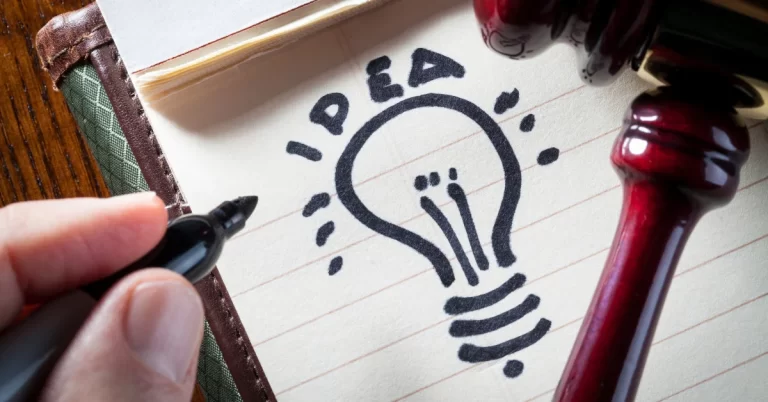What I Wish I Knew Before Becoming a Patent Agent
Becoming a patent agent isn’t exactly the career path that kindergarteners sketch out during “What I Want to Be When I Grow Up” day. There are no patent agent Halloween costumes. No one hands you a toy USPTO badge and says, “Go forth and prosecute some claims, kiddo!”
Yet for those of us who stumble into this peculiar professional niche, it’s a surprisingly perfect intersection of analytical thinking, linguistic precision, and proximity to innovation. It’s also, like most worthwhile pursuits, considerably more nuanced than it appears from the outside.
Now that I’ve survived the patent bar exam and found my footing in Big Law, I’ve had some time to reflect on this strange and satisfying journey. So here it is—what I wish someone had told me before I became a patent agent. The honest edition, no claims drafted to obscure the truth.
1. You’re Not Just Documenting Inventions. You’re Telling Their Origin Stories.
Initially, I thought my job would be straightforward: translate complex technical concepts into arcane legal language. And yes, that’s certainly part of it.
But what no one mentioned was that being a good patent agent means becoming part biographer. The most valuable skill isn’t just understanding the technology—it’s developing an almost anthropological curiosity about how and why an invention came to be.
I remember sitting across from a medical device inventor who kept describing his innovation in purely functional terms. The specs were clear, the mechanics made sense, but something felt incomplete. On a hunch, I asked, “What problem were you actually trying to solve when you built this?”
His entire demeanor changed. He told me about his father’s struggle with Parkinson’s, about watching him try to use standard medical equipment, about the moment he realized he could design something better. Suddenly, I understood not just what the device did, but why specific features mattered and which aspects deserved the strongest protection.
The best patent applications aren’t just technically accurate—they’re emotionally honest about the problem being solved. If you’re just writing specifications and skipping the human element, you’re missing not just the magic, but often the most compelling legal hooks as well.
2. The Learning Curve Is Vertical (and That’s Actually the Point)
The first time I opened an actual patent application, I felt like I was trying to decipher an alien language that happened to contain familiar English words arranged in unfamiliar patterns. The structure. The cadence. The peculiar legal phrasing that somehow manages to be simultaneously hyper-specific and frustratingly vague.
It’s natural to feel like an impostor at first. You’re suddenly expected to speak fluently to engineers, attorneys, and clients—often in the same meeting—while toggling between their distinct dialects.
But here’s the revelation that helped me: that discomfort isn’t a bug in the system—it’s the entire feature. Patent agents thrive precisely because we live at the intersection of multiple disciplines. We’re professional translators, negotiating the space between what something is, what it does, and what it means.
And the relieving truth is: the longer you inhabit this interdisciplinary space, the more natural it becomes. Your brain starts to build neural pathways between previously disconnected knowledge domains. What initially feels like intellectual whiplash eventually becomes your professional superpower.
3. Precision Isn’t Optional—It’s the Whole Job
In most professions, close enough is usually good enough. In patent work, microscopic errors can have macroscopic consequences. One ambiguous term, one overlooked limitation, one moment of imprecise language can fundamentally alter the scope of protection or, worse, render it effectively meaningless.
Early in my career, I drafted a claim for a medical monitoring system with what I thought was an impressive-sounding “compression module.” I was rather proud of how technical it sounded.
My supervising attorney read it, raised a single eyebrow, and asked with careful restraint, “Does this component actually compress anything, or is that just what you’ve decided to call it?”
After an awkward pause, I admitted that no, it didn’t compress anything—it just tracked compression rates performed elsewhere in the system. Different function, different meaning, dramatically different legal protection.
The lesson wasn’t about using fancier words—it was about understanding that in this field, precision isn’t about perfectionism or showing off. It’s about professional responsibility. Someone’s intellectual property rights literally depend on your ability to say exactly what you mean, no more and no less.
4. You’ll Start Seeing the World in Claims
A few months into the job, I noticed a strange phenomenon: I couldn’t look at everyday objects without mentally drafting claims for them. A coffee maker became “a beverage production system comprising a water reservoir fluidly coupled to a heating element.” A backpack transformed into “a wearable storage apparatus including adjustable load-bearing straps.”
It’s the patent agent’s version of the medical student who starts diagnosing strangers on the subway. Is it slightly concerning? Perhaps. Is it also strangely satisfying? Absolutely.
This mental habit signals something important: your brain is rewiring itself to simultaneously think like an inventor, an examiner, and eventually, a lawyer. You’re developing the ability to see both the forest and the trees—to understand both what something is and how it might be protected.
5. The Real Reward? Being Genuinely Useful
For all the technical complexity and legal precision this job demands, the most profound satisfaction comes from surprisingly human moments:
When a startup founder realizes, with visible relief, that their innovation can actually be protected in ways they never considered.
When a research team says, “We’ve been trying to explain this to people for months, and you’re the first person who actually gets it.”
When a hesitant inventor becomes noticeably more confident about their work because you’ve helped them articulate its value.
Those moments clarify everything. Being a patent agent isn’t about showcasing your own brilliance—it’s about using your particular skills to amplify the brilliance of others. Quietly, precisely, consequentially.
Final Thoughts
If you’re considering this path, here’s my honest assessment:
It’s not glamorous. It’s rarely simple. But if you find joy in intellectual puzzles and linguistic precision— If you’re genuinely curious about how things work and how to explain them— If you believe that innovation deserves not just celebration but protection—
Then this peculiar profession might be exactly where you belong.
The world needs more people who can bridge the gap between breakthrough ideas and the legal frameworks that help them thrive. It’s not the career I imagined having, but it’s one I’m profoundly grateful to have found.






